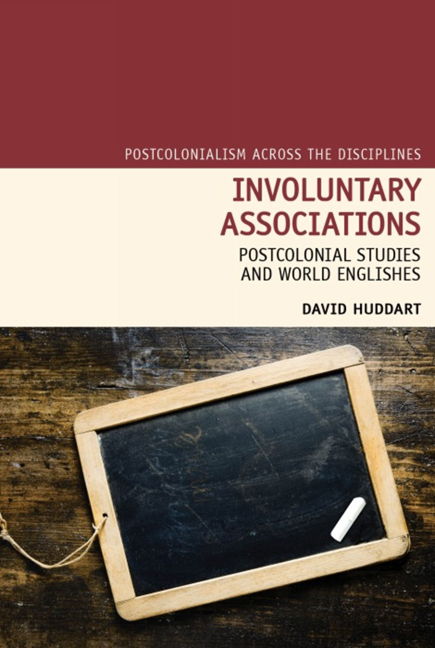Book contents
- Frontmatter
- Dedication
- Acknowledgements
- Contents
- Introduction
- 1 Involuntary Associations: ‘Postcolonial Studies’ and ‘World Englishes’
- 2 Grammars of Living Break their Tense: World Englishes and Cultural Translation
- 3 English in the Conversation of Mankind: World Englishes and Global Citizenship
- 4 Declarations of Linguistic Independence: The Postcolonial Dictionary
- 5 Writing after the End of Empire: Composition, Community, and Creativity
- 6 Slow Reading: The Opacity of World Literatures
- Conclusion: English Remains, Englishes Remain
- Bibliography
- Index
6 - Slow Reading: The Opacity of World Literatures
- Frontmatter
- Dedication
- Acknowledgements
- Contents
- Introduction
- 1 Involuntary Associations: ‘Postcolonial Studies’ and ‘World Englishes’
- 2 Grammars of Living Break their Tense: World Englishes and Cultural Translation
- 3 English in the Conversation of Mankind: World Englishes and Global Citizenship
- 4 Declarations of Linguistic Independence: The Postcolonial Dictionary
- 5 Writing after the End of Empire: Composition, Community, and Creativity
- 6 Slow Reading: The Opacity of World Literatures
- Conclusion: English Remains, Englishes Remain
- Bibliography
- Index
Summary
The majority of these students are never going to learn much literary English. It forms no natural part of their life needs.
I.A. Richards, Basic English and its Uses[I]n order to do distant reading one must be an excellent close reader. Close reading for distant reading is a harnessing of aesthetic education for its own counter-example.
Gayatri Chakravorty Spivak, ‘World Systems and the Creole’Introduction
This series seeks to move beyond expected debates in postcolonial literary studies. In spite of that desire, in order to be adequate to what Wai-chee Dimock calls ‘the planetary circuit of tongues’ (2008, 142), postcolonial studies remain inevitably invested in forms of English literary studies. On one level, postcolonial literary studies continues to produce individual readings of literary works, writers, and national literatures. Perhaps some commentators argue that it requires no more readings of this type, but there are arguably new things to be argued, and in any case there will always be new works to be considered through the postcolonial paradigm. Alongside such literary critical readings, there is a postcolonial approach to the discipline of literary studies itself, considering the ways its histories have been part of colonial education, helping to frame the identities of the colonizing and colonized cultures. As probably the most influential example of this analysis, Ngũgĩ (1981; 1997) eloquently puts the case that European literary education restrictively frames the world for African eyes. This historical and cultural framing helps to explain, for Ngũgĩ, the institutional and symbolic value attached to the English department. Accordingly, the obvious extension of his case is for the English department's abolition (1972). Others have probed the historical details of the literary critical project. In a more narrowly British example, Chris Baldick (1983) examines the ways in which literary criticism through the Victorian period into the 1930s was a response to a never-ending crisis of culture. As mentioned earlier, from a specifically postcolonial perspective Gauri Viswanathan (1989) explores in detail the famously tangled history of English literary studies in the colonies. The incorporation of English literary culture into the civil service examinations throughout the empire becomes a revealing indication of the work for which literary studies was intended, but which it has (hopefully) transcended.
- Type
- Chapter
- Information
- Involuntary AssociationsPostcolonial Studies and World Englishes, pp. 116 - 132Publisher: Liverpool University PressPrint publication year: 2014



